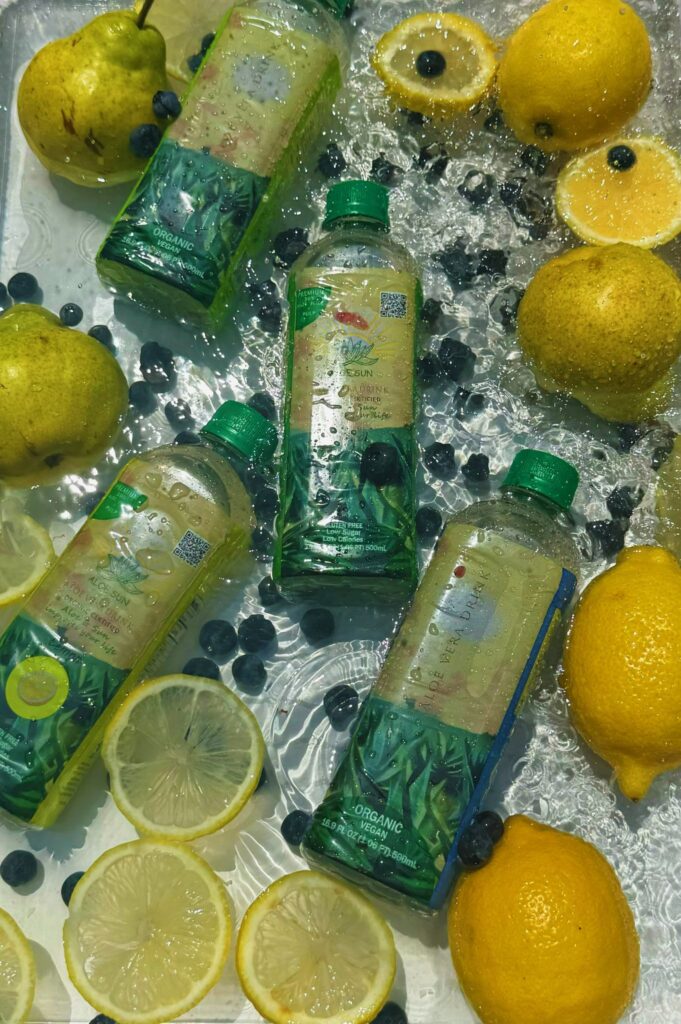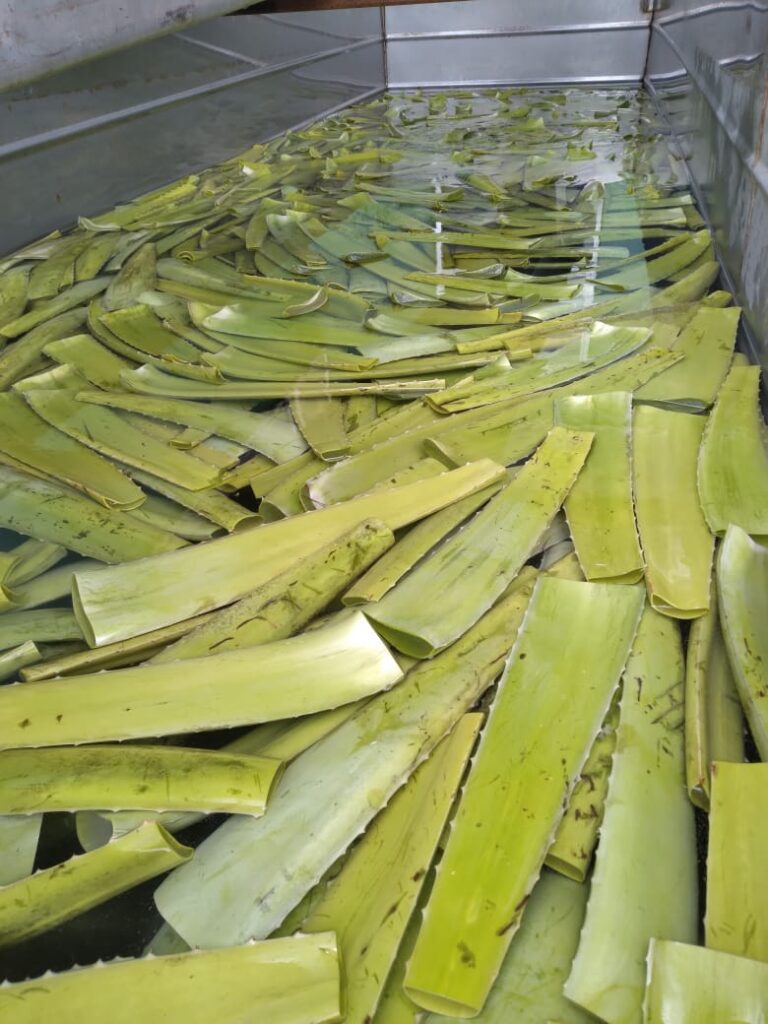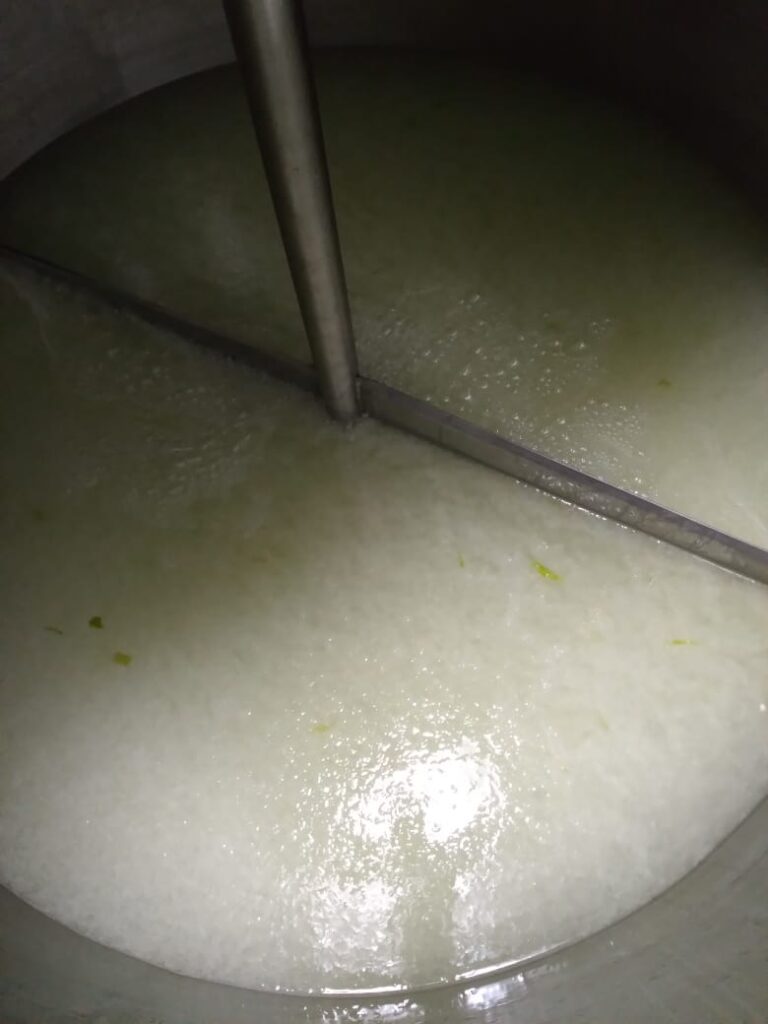Introduction to Aloe Vera Drinks

Aloe vera drinks have increasingly captured the interest of health-conscious consumers around the globe. Renowned for their soothing and healing properties, these beverages offer a plethora of health benefits that include enhanced hydration, improved digestion, and a boost in vitamins and minerals.
Aloe vera, a succulent plant known for its gel-filled leaves, has been utilized for centuries in traditional medicine for its anti-inflammatory and immune-boosting capabilities. This ancient remedy has found a modern application in the form of refreshing aloe vera drinks, making it easier for individuals to incorporate the plant’s benefits into their daily lives.
The rising popularity of aloe vera drinks can be attributed to a growing awareness of holistic wellness practices and the shift towards natural and organic products. These beverages appeal to a broad demographic, including those seeking to maintain a balanced lifestyle, athletes looking for natural hydration solutions, and individuals interested in alternative health remedies.
Markets around the world have witnessed a surge in aloe vera drink offerings, showcasing an assortment of flavors that cater to varied taste preferences while retaining their core health benefits.
Sustainability has become a pivotal factor in consumer choices, particularly within the beverage industry. As environmental concerns continue to influence purchasing decisions, the emphasis on sustainably sourced and manufactured products has never been greater. Aloe vera drinks are no exception.
The production and distribution processes involved play a significant role in determining the overall environmental impact of these beverages. This makes the source and method of production critical considerations for environmentally-conscious consumers.
Understanding the importance of sustainability in such products, especially when locally manufactured, brings to light the intertwined benefits of health, wellness, and environmental responsibility.
The Strategic Location: From McAllen, Texas to the United States
Aloe Sun Products LLC is located in McAllen, Texas, which holds a significant geographical advantage, positioning itself as a pivotal distribution hub for aloe vera drinks across the United States.
Nestled in the Rio Grande Valley, this city benefits from its proximity to the Mexico border, making it an ideal gateway for international trade. The location offers superior logistical capabilities, wherein goods can be easily transported across borders, streamlined through established trade routes, and distributed efficiently throughout the nation.
This strategic placement not only supports local manufacturers but also plays a crucial role in enhancing the sustainability of aloe vera drinks.
One of the prominent advantages of McAllen is the city’s accessibility to major transportation networks. Extensive highways, well-maintained railroads, and a functional international airport enable seamless movement of goods.
These transportation alternatives contribute to reducing lead times and ensuring that the aloe vera beverages reach various parts of the country rapidly and in optimal condition.
In addition to the logistical benefits, McAllen’s position near the border facilitates efficient cross-border trade with Mexico, which is significant considering Mexico’s globally recognized aloe vera production.
This cross-border synergy ensures a steady supply of high-quality aloe vera drinks, fortifying McAllen’s role in the supply chain.
Moreover, McAllen’s economic landscape is characterized by a robust infrastructure tailored to support manufacturing and distribution activities. The presence of industrial parks, warehousing facilities, and an established, skilled workforce further enhances the city’s ability to manage large-scale distribution operations.
This infrastructure is integral in maintaining the flow of aloe vera drinks, ensuring that the beverages are not only produced sustainably but also distributed sustainably, with reduced carbon footprints owing to optimized transportation routes.
In essence, McAllen’s strategic location, combined with its excellent logistics, robust infrastructure, and cross-border trade capabilities, underpins its competence as a distribution hub. By leveraging these geographic and economic assets, our aloe vera drinks can be distributed efficiently to meet the demand across the United States, thus fostering both local economic growth and sustainable practices.
Manufacturing in Ciudad Victoria, Tamaulipas, Mexico
The production of our aloe vera drinks in Ciudad Victoria, Tamaulipas, Mexico, represents a pivotal segment of the supply chain.
The city’s strategic proximity to the U.S. border plays a crucial role in minimizing both transportation distances and associated carbon emissions.
This advantageous location not only supports efficient logistics but also aligns with contemporary sustainability goals, making the choice of Ciudad Victoria particularly advantageous for eco-conscious consumers.
The production process begins with the careful cultivation of aloe vera plants, which thrive in the region’s climatic conditions. These plants are meticulously harvested to preserve the quality of the aloe vera gel, which forms the core ingredient of the beverage. Once harvested, the aloe vera leaves undergo a series of steps including washing, filleting, and stabilization to ensure that the gel maintains its natural properties, free from contaminants.

The high-quality manufacturing standards maintained by our manufacturing partner in Ciudad Victoria are a testament to the region’s commitment to excellence. Advanced processing facilities leverage state-of-the-art technology to ensure that each bottle of aloe vera drink meets stringent quality control criteria. These facilities are staffed by skilled professionals who are dedicated to maintaining the integrity of the production process, from raw material handling to the final bottling phase.

In addition to the rigorous quality control measures, the city’s manufacturers prioritize sustainable practices throughout the production cycle. This includes utilizing energy-efficient equipment, reducing water usage, and recycling production waste wherever possible. These practices not only enhance the quality of the aloe vera drinks but also underscore the region’s commitment to environmental stewardship.
In summary, the production of aloe vera drinks in Ciudad Victoria, Tamaulipas, exemplifies a confluence of quality manufacturing and sustainable practices. The city’s geographic advantage, combined with its dedication to high standards, significantly contributes to the sustainability of locally manufactured beverages available in McAllen, Texas.
Carbon Footprint: A Major Competitive Advantage
In the modern discourse on sustainability, the carbon footprint of a product remains a pivotal factor. Aloe vera drinks, when manufactured closer to the U.S. border, offer distinct advantages over those produced in distant locations such as China or South Korea. The primary advantage stems from shorter transportation routes, which considerably reduce greenhouse gas emissions.
Transportation is a significant contributor to a product’s overall carbon footprint. Aloe vera drinks produced in Ciudad Victoria, Tamaulipas, Mexico and distributed from McAllen, Texas, for instance, benefit from proximity to major U.S. markets, including key distribution hubs.
This logistical convenience translates to fewer miles traveled, directly resulting in lower fuel consumption and decreased emissions of pollutants such as carbon dioxide (CO2). By contrast, beverages imported from Asia endure lengthy transoceanic voyages and extensive inland transport, exponentially increasing their carbon footprint.
Local manufacturing in Tamaulipas, Mexico not only cuts down on transit distances but also leverages existing infrastructure, further amplifying environmental benefits. These shorter supply chains enhance efficiency, minimizing energy usage and fostering a more sustainable production cycle.
Moreover, the lower carbon output directly supports initiatives aimed at minimizing ecological impact, aligning with increasing consumer demand for greener products.
Additionally, the environmental gains extend beyond mere carbon calculations. Supporting local manufacture reduces dependency on international shipping, which often involves various modes of transport including ships, trucks, and trains. Each step in this global supply chain hierarchy adds layers of emissions, contrasting starkly with the reduced logistical complexity of locally manufactured aloe vera drinks.
Ultimately, by promoting the production of aloe vera beverages close to the U.S. border, businesses can leverage significant environmental benefits. These advantages not only underscore a commitment to sustainability but also appeal to an eco-conscious customer base, creating a compelling competitive edge in the beverage market.
The Environmental Cost of Overseas Production
Importing aloe vera drinks from Asian countries has a profound environmental impact, mainly due to the extensive transportation routes involved. Aloe vera juice, initially sourced from Mexico, is shipped to Asia for processing and bottling, before making its way back to the United States. This convoluted supply chain significantly increases the carbon footprint of each bottle of aloe vera drink.
Shipping products halfway across the world consumes an immense amount of fossil fuel, contributing to carbon dioxide emissions. Transporting goods via large container ships is a significant source of greenhouse gases; each journey produces CO2, sulfur oxides, and nitrogen oxides, which collectively contribute to global warming and air pollution. This environmental burden is further amplified when considering trucking and other forms of transportation required to move the product through various stages of manufacture and distribution.
Additionally, the energy-intensive processes utilized in both exporting raw materials and importing the finished product add to the overall environmental cost. These operations involve not only transportation but also cooling, packaging, and storage, all of which require considerable amounts of energy. Consequently, the environmental benefits of a natural product like aloe vera are undermined by the pollution generated during its international journey.
Furthermore, the packaging materials used in overseas production often include plastics, leading to an increased waste footprint. Even if the aloe vera bottles are recyclable, the fact remains that they contribute to the ever-growing problem of plastic pollution, which has severe ramifications for marine and terrestrial ecosystems.
In essence, while aloe vera drinks might offer numerous health benefits, the environmental costs of trans-oceanic production are substantial. By evaluating the carbon emissions and waste generated by such extensive transportation routes, it becomes evident that more sustainable alternatives, like local manufacturing, are necessary to mitigate the negative impact on the environment.
The Sustainability Benefits of Local Manufacturing
The sustainability advantages of manufacturing aloe vera drinks in Mexico for the U.S. market are increasingly evident in the context of global decarbonization goals.
Local manufacturing significantly reduces the environmental impact associated with transportation. By sourcing aloe vera locally and manufacturing the beverages nearby in Mexico, the carbon footprint of shipping raw materials across long distances is minimized. This localized approach directly contributes to reducing greenhouse gas emissions, a crucial step in mitigating climate change.
Furthermore, local manufacturing supports a greener supply chain. Utilizing regional raw materials not only lowers transportation emissions but also stimulates local economies and promotes sustainable farming practices.
In regions where aloe vera is naturally abundant, such as parts of Mexico, harvesting and production can be managed more sustainably, with less reliance on chemical inputs and more opportunities for organic cultivation. This environmentally conscious approach aligns well with global sustainability goals, driving the industry towards environmentally friendly practices.
Aligning the manufacturing processes with eco-friendly methods enhances the sustainability of aloe vera drinks. Mexico, with its favorable climate for aloe vera cultivation, is in an advantageous position to lead this eco-initiative. Establishing eco-friendly production standards and implementing sustainable packaging solutions further advances the overall sustainability profile of these beverages.
In addition, the local manufacturing of aloe vera drinks contributes to social sustainability by creating jobs and fostering economic growth in the region. This holistic approach not only benefits the environment but also supports the well-being of local communities. The interconnected benefits emphasize the importance of local manufacturing in designing a sustainable future for the beverage industry.
Consumer Impact and Responsibility
Consumers wield significant power in shaping the market dynamics, especially when it comes to sustainable products like locally manufactured aloe vera drinks. By choosing these beverages, consumers in USA and Canada, can contribute to a range of positive outcomes that extend beyond personal health benefits.
One of the most immediate impacts is the support for local or neighbor economies. When consumers opt for aloe vera drinks produced in Mexico, they are directly contributing to the livelihood of farmers, manufacturers, and small businesses in mexican communities. This, in turn, fosters economic resilience and job creation, ensuring that more money stays within the local economy.
Moreover, the choice of locally manufactured aloe vera drinks has broader environmental implications. Transporting beverages across long distances contributes significantly to global carbon emissions, exacerbating climate change.
By contrast, local manufacturing minimizes the carbon footprint associated with transportation. Reduced travel distances mean lower fuel consumption and fewer greenhouse gas emissions, thus lessening the global environmental impact. Additionally, local or regional producers are often more attuned to sustainable agricultural practices, opting for organic farming methods that are less harmful to the environment.
Another important aspect is the connection between consumers and the source of their products. Choosing regionally made aloe vera drinks facilitates greater transparency and trust in the product’s quality. Consumers are more likely to know the origin of the ingredients, the methods of production and the social and environmental ethics of the producers. This level of transparency is increasingly valued in today’s market, where consumers are becoming more conscientious about the environmental and ethical implications of their purchases.
Through informed choices, consumers in U.S. market, can collectively drive demand for more sustainable, locally-sourced aloe vera drinks. Such choices not only yield personal health benefits but also contribute positively to the community and the planet. The cumulative effect of these choices demonstrates that consumer responsibility and thoughtful decision-making can indeed foster a more sustainable future.
Conclusion: A Greener Choice for a Sustainable Future
As we have explored throughout this blog, aloe vera drinks present a multitude of benefits, both health-wise and environmentally. In particular, opting for locally manufactured aloe vera beverages produced in Mexico offers a compelling case for sustainability.
These drinks not only provide essential nutrients and hydration but also embody a commitment to reducing the environmental impact related to production and distribution.
Consumers increasingly seek ways to make more responsible and eco-friendly choices. Choosing aloe vera drinks manufactured closer to the U.S. border, can significantly cut down on transportation emissions, a key factor in minimizing carbon footprints. The localized production also lends support to the regional economy, fostering closer ties within the community and promoting sustainable agricultural practices within the Tamaulipas state in Mexico.
Moreover, investing in locally produced aloe vera beverages can help curtail the reliance on long-haul transportation, which often results in considerable fossil fuel consumption and greenhouse gas emissions. Businesses involved in these local enterprises often emphasize organic farming techniques and sustainable resource management, further reducing the ecological impact.
It is essential for consumers to recognize the broader implications of their purchasing habits. Integrating more sustainable choices into our routines can lead to meaningful changes in our environmental impact. By opting for aloe vera drinks manufactured in Mexico, you contribute to a reduction in carbon emissions and support sustainable practices, all while enjoying a nutritious and refreshing beverage.
Ultimately, making informed decisions about what we consume can drive more significant collective efforts towards a sustainable future. Embrace the advantages of locally manufactured aloe vera drinks and take a proactive step in nurturing both personal health and the planet.

Comments are closed